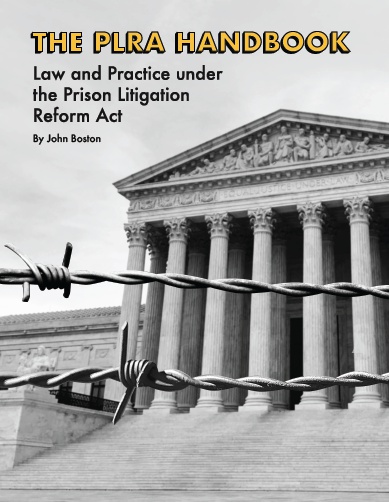WASHINGTON — Ammon and Ryan Bundy, leaders of an armed occupation in Oregon earlier this year, are unhappy with the rules in their jail.
The brothers have been in custody since their arrest in January. But at Multnomah County Detention Center, they’ve got demands: Ryan Bundy wants to see his brother. He feels his Second Amendment right to keep and bear arms has been violated. He doesn’t want people rifling through his stuff. Both have said they want access to the internet, including Facebook and email, in order to prepare their defense. They want chairs in their cells so they don’t have to kneel to write, a better computer, a cordless printer, a scanner, external hard drives and Microsoft Movie Editor. They also want to strategize with the other occupiers involved in the armed takeover of a federal wildlife refuge near Burns, Oregon, for which they face federal conspiracy and other charges.
“If they are going to detain us as innocent men, then they are obligated to afford us the rights to defend ourselves and emotionally connect to our families,” Ammon Bundy told The Huffington Post in an email sent by one of his attorneys, Mike Arnold.
Bundy also called jail “a job programs for more government employees rather than a system that brings justice and fair due process.”
The Bundys aren’t big on government rules they don’t believe in. They took over the federal property to protest the imprisonment of two ranchers, Dwight Hammond and his son, Steven, who were convicted of arson, imprisoned, released and then resentenced to longer terms. They were also were protesting federal land stewardship, an issue their father, Cliven Bundy, raised by refusing to pay the government more than $1 million in grazing fees.
The Multnomah County Sheriff’s Office has denied most of the Bundy brothers’ requests, according to a court document filed last week. That’s not surprising: Jails across the country generally don’t grant inmates these privileges. But Arnold, Ammon Bundy’s attorney, says they should.
“Name me one ‘exception’ that can’t be accommodate[d] by a forward thinking criminal justice system that cares about due process and fair trials,” he told HuffPost.
Some of the brothers’ requests are fairly standard, like accommodations for religious practice and unmonitored attorney calls. Others, like access to Facebook, seem less likely to be granted. When it comes to the web, a court document claims the Bundy brothers need access because of the “unique nature of this case.” But inmates across the United States could benefit from internet access, even if they’re not famous — as advocates have been saying for years.
“Giving prisoners access to computers, access to email and some access to the internet, with necessary restrictions, is a very positive thing,” said David Fathi, director of the ACLU’s National Prison Project.
Some prisoners have access to electronic messaging services offered by for-profit companies, but these systems can cost as much as $1.25 per message, according to the Prison Policy Initiative, a nonprofit that campaigns for prison reform. In some institutions, inmates have access to legal information through services like Westlaw. But these resources may not be sufficient for inmates who are preparing for a criminal case, particularly if they are defending themselves (Ryan Bundy is representing himself and has a stand-by counsel.)
If pretrial inmates had internet access, then perhaps there wouldn’t be situations like the one at Rikers Island jail in New York City where a man spent five months in jail because he didn’t know his bail was set at just $2.
In a court filing, Ammon Bundy’s lawyers point out the computer in the detention center’s library is manually updated, does not have a word processing program and does not allow inmates to save documents. To remedy these issues, the jail has said it would consider allowing attorneys to load legal documents on iPads that the Bundys could have in their cells. But some of the evidence the federal government has brought against the defendants in the Oregon case relies on social media postings that the government says are evidence of a conspiracy to impede federal officers. The Bundys argue that they need access to social networks to defend themselves against those charges.
Prison reform advocates say the internet is an important tool for prisoners after they’re convicted, too, because it facilitates education, job training and staying in touch with friends and family — all factors that promote rehabilitation.
Alex Friedmann, associate director of the Human Rights Defense Center, which publishes Prison Legal News, said he supports monitoring inmates’ computer use for security reasons — so they can’t look up “how to escape prison 101” or “how to build a bomb in your cellblock” — but that the benefits of access outweigh the risks. Authorities are already struggling to keep up with the thriving black market for smartphones. In 2013 alone, Florida’s correction department seized 4,200 mobile phones from state prisons, according to Fusion.
It doesn’t look like inmates, including the Bundys, will be getting access to internet anytime soon. According to the court filing, the Multnomah County Sheriff’s Office noted that providing unmonitored internet access “would be a substantial threat to facility security” and the jail does not have the staff or resources to monitor it.
There’s also no precedent for granting this kind of exception. “We do not have internet access for any of our jail inmates, nor have we ever provided it,” said Capt. Steve Alexander, a spokesman for the sheriff’s office.
The Bundys said they are considering legal action over what they describe as civil rights violations. Arnold said it was his understanding that when Ryan Bundy complained about the infringement of his Second Amendment rights, he was pointing out that a system that curtails rights based on a yet-unproven government accusation is not just.
“Of course, he’s not asking for firearms in jail,” he said.







